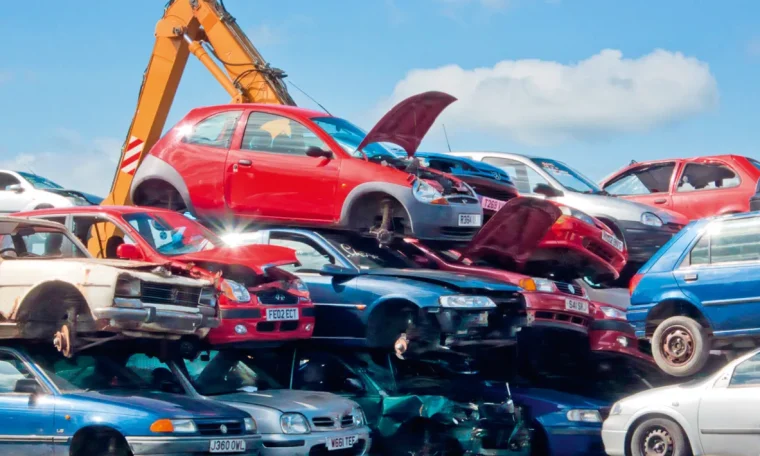
Car disposal is a critical aspect of automotive ownership that often gets overlooked until the end of a vehicle’s life cycle. Whether due to age, damage or simply no longer meeting transportation needs, every car eventually reaches a point where disposal becomes necessary. However, proper disposal goes beyond just getting rid of the vehicle – it involves responsibly managing the environmental impact of retired cars. In this article, we’ll explore the process of car disposal in Sydney, its environmental implications, methods of disposal, and frequently asked questions to help you navigate this essential aspect of automotive ownership.
1. Understanding Car Disposal
Car disposal refers to the process of permanently removing a vehicle from service and properly managing its components, fluids, and materials. It involves dismantling the vehicle, salvaging reusable parts, recycling materials, and disposing of hazardous waste in an environmentally responsible manner. Car disposal aims to minimize the environmental impact of retired vehicles while reclaiming valuable resources for reuse in manufacturing and other industries.
2. Environmental Implications of Car Disposal
Proper car disposal is crucial for mitigating the environmental impact of retired vehicles. When cars are improperly disposed of, they can leak harmful fluids and chemicals into the soil and water, contributing to pollution and environmental degradation. Additionally, many car components, such as batteries, tires, and fluids, contain hazardous materials that can pose health risks if not managed properly. By ensuring responsible disposal practices, we can minimize pollution, conserve natural resources, and protect ecosystems for future generations.
3. Methods of Car Disposal
There are several methods of car disposal, each with its benefits and considerations:
- Recycling: Recycling is one of the most environmentally friendly methods of car disposal. During the recycling process, vehicles are dismantled, and materials such as metal, glass, plastic, and rubber are sorted and recycled for use in manufacturing new products. Recycling helps conserve natural resources, reduce energy consumption, and minimize the need for raw materials.
- Salvage Yards: Salvage yards, also known as auto wreckers or scrapyards, purchase old or damaged vehicles for salvageable parts and materials. These parts are then sold to consumers looking for affordable replacement components. Salvage yards play a vital role in extending the lifespan of vehicle parts and reducing the demand for new manufacturing.
- Donation: Donating a car to charity is another option for disposal, especially if the vehicle is still in working condition. Many charitable organizations accept car donations and use the proceeds from the sale of the vehicle to fund their programs and initiatives. Donating a car not only helps support a worthy cause but also provides a tax deduction for the donor.
- Professional Disposal Services: Professional car disposal services specialize in the environmentally responsible disposal of retired vehicles. These services handle all aspects of disposal, from towing the vehicle away to recycling or salvaging its components. Professional disposal services ensure that retired cars are disposed of safely and in compliance with environmental regulations.
4. The Importance of Proper Car Disposal
Proper car disposal is essential for several reasons:
- Environmental Protection: Responsible disposal practices help prevent pollution and minimize the environmental impact of retired vehicles. By recycling materials and disposing of hazardous waste properly, we can protect ecosystems and safeguard natural resources for future generations.
- Public Health and Safety: Improperly disposed of cars can pose health and safety risks to communities. Leaking fluids and hazardous materials can contaminate soil and water sources, endangering public health and wildlife. Proper disposal practices help mitigate these risks and ensure the safety of communities.
- Resource Conservation: Recycling and salvaging retired vehicles help conserve valuable resources such as metal, glass, and rubber. By reusing materials from old cars, we reduce the need for new manufacturing and minimize the depletion of natural resources.
- Compliance with Regulations: Proper car disposal ensures compliance with environmental regulations and laws governing waste management. By following established disposal practices, individuals and businesses can avoid fines and penalties associated with illegal dumping or improper disposal of vehicles.
5. Conclusion
In conclusion, car disposal is an essential aspect of automotive ownership that requires careful consideration and responsible management. By ensuring proper disposal practices, we can minimize the environmental impact of retired vehicles, protect public health and safety, conserve valuable resources, and comply with regulatory requirements. Whether through recycling, salvage, donation, or we buy cars for cash services, there are various options available for responsibly disposing of old or unwanted cars. By choosing the appropriate disposal method and following established practices, we can contribute to a cleaner, safer, and more sustainable environment for all.
FAQs
1. Can I dispose of a car myself?
While it is possible to dispose of a car yourself, it is not recommended unless you have the necessary knowledge and resources to do so responsibly. Improper disposal can lead to environmental pollution and legal consequences. It’s best to rely on professional disposal services or reputable recycling facilities for car disposal.
2. How do I prepare my car for disposal?
Before disposing of your car, remove any personal belongings and thoroughly clean out the interior. Remove license plates and cancel your registration to avoid any liability issues. Drain fluids such as oil, coolant, and gasoline and properly dispose of them according to local regulations.
3. Can I dispose of a car that doesn’t run?
Yes, many car disposal services accept vehicles in any condition, including those that do not run. Whether your car is damaged, non-running, or simply unwanted, you can often find a disposal service willing to take it off your hands.
4. Is it possible to get money for disposing of my car?
In some cases, you may receive money for disposing of your car, especially if it has salvageable parts or valuable materials. Salvage yards and professional disposal services may offer payment for cars they can salvage or recycle. However, the amount you receive will depend on factors such as the condition of the vehicle and current market prices for scrap materials.
5. What happens to my car after it’s disposed of?
After your car is disposed of, it undergoes a process of dismantling, recycling, or salvaging, depending on the disposal method chosen. Materials such as metal, glass, plastic, and rubber are sorted and recycled for use in manufacturing new products. Any hazardous materials are disposed of safely and in compliance with environmental regulations.



